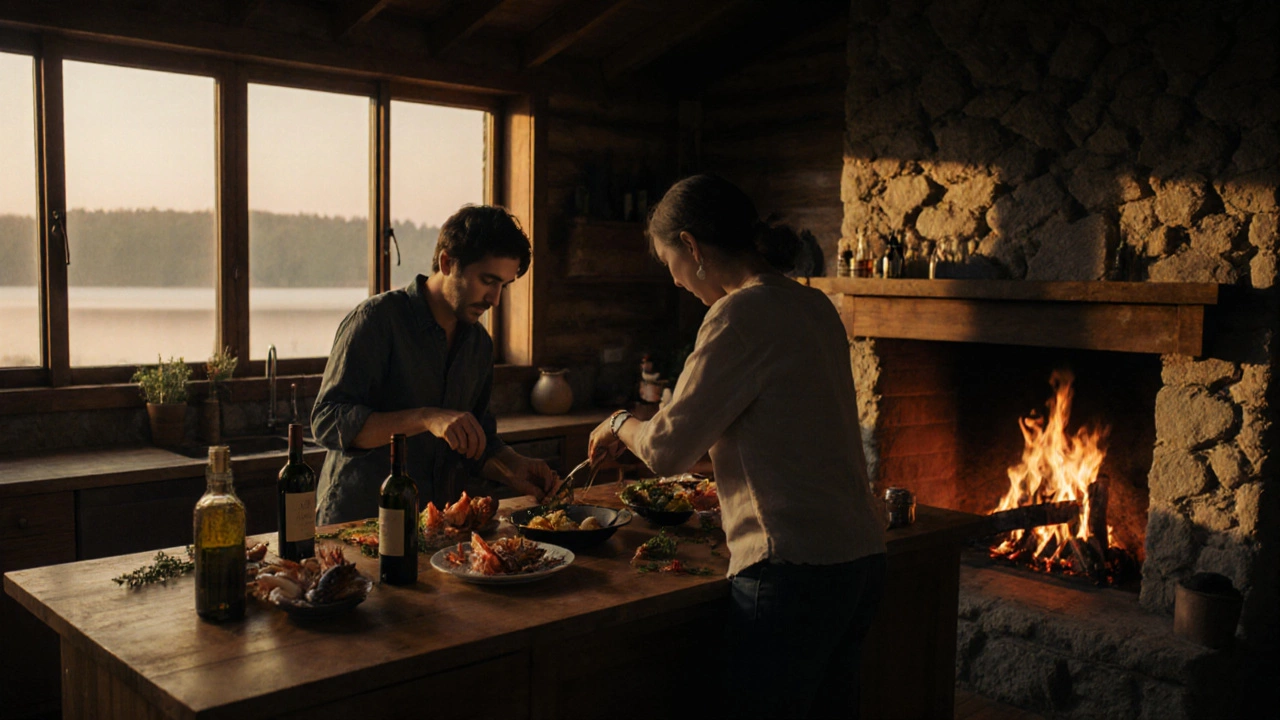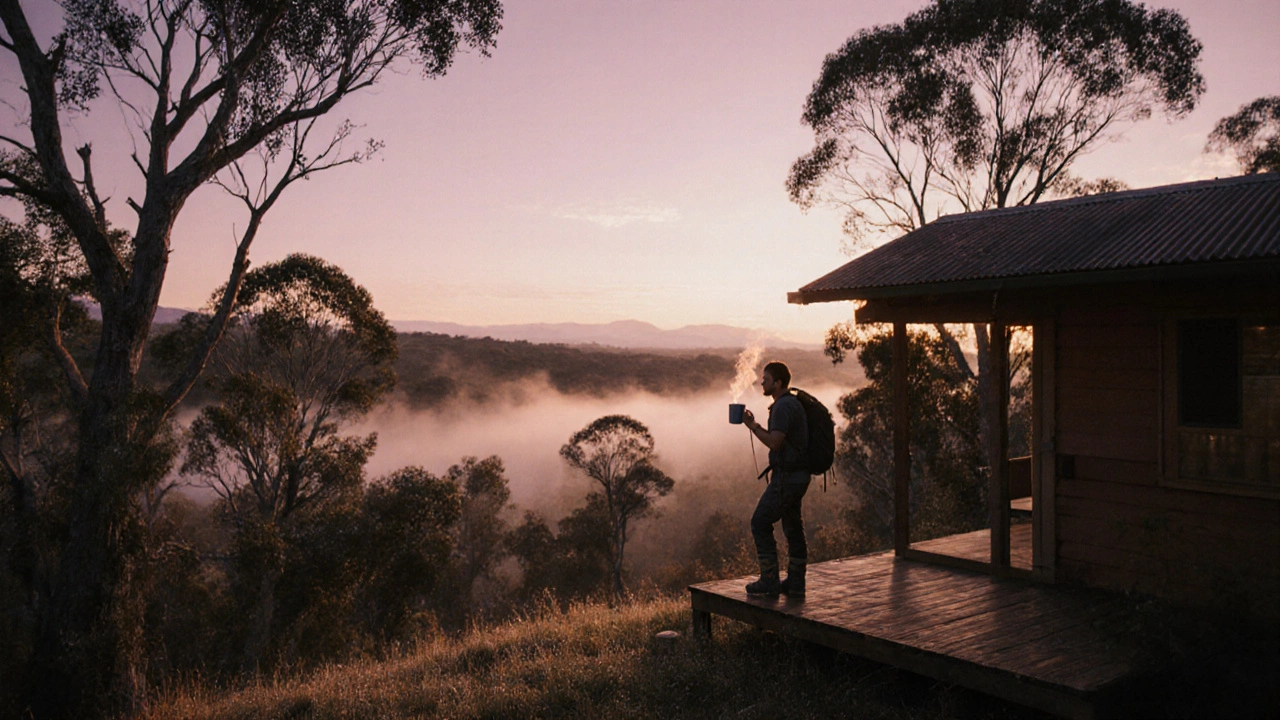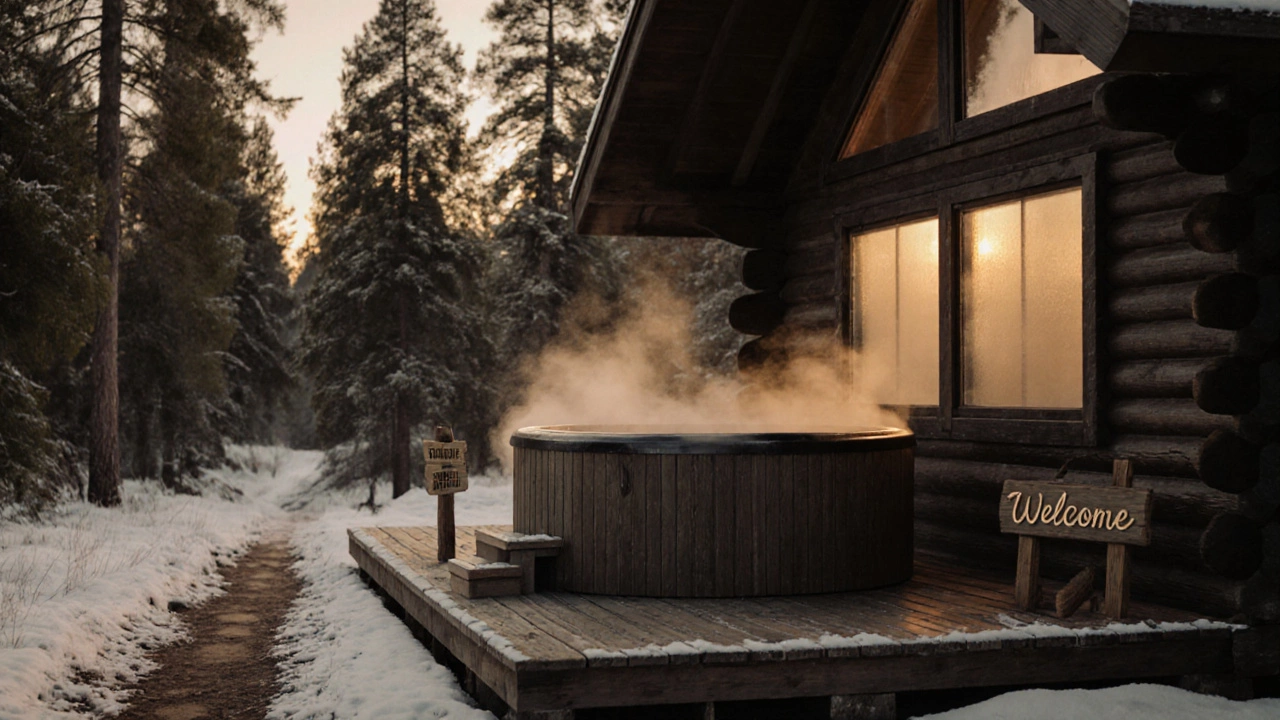Vacation Cabin Cost Calculator
Calculate Your True Travel Costs
Cost Comparison Results
Cabin Total Cost
Hotel Total Cost
Total Savings
Ever stared at a photo of a cozy log cabin tucked into the pines, steam rising from a hot tub, and thought, ‘This would be perfect’-then checked the price and felt your stomach drop? You’re not alone. Vacation cabins are everywhere on Instagram, Airbnb, and Booking.com. But are they actually worth it, or are you just paying for a pretty backdrop and a lot of hidden costs?
The truth? It depends. Not all cabins are created equal. Some feel like a luxury escape. Others feel like renting a shed with a microwave. And the price tag doesn’t always tell the whole story.
What You’re Actually Paying For
When you book a vacation cabin, you’re not just paying for four walls and a bed. You’re paying for:
- Location - A cabin on a quiet lake in the mountains costs more than one five minutes from a highway.
- Size and layout - A two-bedroom cabin with a full kitchen and deck costs more than a one-room studio.
- Amenities - Hot tub? Fireplace? Wi-Fi? Washer/dryer? Each adds to the price.
- Season - Weekend in December? Double the rate. Midweek in October? Half.
On average, a basic two-person cabin in Australia costs $180-$300 per night in peak season. A luxury cabin with a hot tub, lake view, and full kitchen? $450-$800. That’s more than a mid-range hotel room - but you’re getting more space, privacy, and control.
Why Cabins Feel Like a Better Deal Than Hotels
Let’s say you’re planning a weekend for two. A hotel room might cost $220 a night. Sounds fair. But here’s what you’re missing:
- No kitchen means eating out every meal. Two dinners at $40 each? That’s $80. Add breakfast and lunch? You’re at $200 extra.
- Hotel minibars, Wi-Fi fees, parking charges - they add up fast.
- You’re sharing walls, hallways, and elevators with strangers. No quiet mornings. No late-night movie on the couch in pajamas.
A cabin with a kitchen lets you cook breakfast, pack lunches, and sip wine by the fire without spending a cent more. You’re not just saving money - you’re saving stress. And for couples looking for a romantic escape, that quiet, private space matters more than a fancy lobby.
The Hidden Costs No One Tells You About
Here’s the catch: cabins often come with fees you don’t see until checkout.
- Cleaning fees - $75 to $150, even for a two-night stay. Some hosts charge this even if you leave it spotless.
- Resort fees - Some cabins in gated communities or near parks charge daily fees for access to pools, trails, or shuttles.
- Damage deposits - $200-$500 held on your card. You might not get it back if they claim a candle melted the wooden table.
- Utility caps - Some cabins limit electricity or water use. Run the hot tub for two hours? You get a $50 surcharge.
One couple in the Blue Mountains booked a cabin advertised as “all-inclusive.” Turned out, the “all-inclusive” meant the firewood was included. The hot tub? Extra $40 per use. The Wi-Fi? $15 per day. They ended up paying 40% more than the listing price.

When Cabins Are Worth Every Penny
They’re not always the right choice. But here’s when they shine:
- You’re traveling with a partner - No kids, no noise, no shared bathrooms. Just you, a bottle of wine, and a view.
- You want to unplug - No office emails. No social media pressure. Just silence, stars, and a good book.
- You’re cooking together - Prepping meals side-by-side in a kitchen is more intimate than dining in a restaurant.
- You’re staying more than two nights - The per-night cost drops, and the savings on meals add up.
- You’re in a remote area - If you’re hiking in the Grampians or exploring the Otways, cabins are the only real option.
My friends booked a cabin near Kangaroo Island for four nights last spring. They cooked fresh seafood they bought at the market. Watched the sunset from the deck. Didn’t leave the property for two days. Total cost: $1,100. A hotel would’ve cost $1,400 - and they’d have missed half the experience.
When to Skip the Cabin
Don’t book a cabin if:
- You’re traveling with kids under 8 - No babysitters, no pools, no room service. A cabin can feel like a prison if you’re stuck inside with a toddler.
- You need reliability - Cabins aren’t hotels. The Wi-Fi might be spotty. The shower might run cold. The door might not lock right. If you’re on a business trip or need perfect conditions, stick with a hotel.
- You’re only staying one night - The cleaning fee makes it barely worth it. You’re better off with a hotel for a quick stopover.
- You’re not prepared - No groceries? No firewood? No phone signal? You’ll be frustrated, not relaxed.

How to Find the Right Cabin
Not every listing is trustworthy. Here’s how to pick one that won’t ruin your trip:
- Read reviews with a critical eye - Look for mentions of cleanliness, Wi-Fi speed, and how responsive the host is. One-star reviews that say “the cabin was perfect but the host ghosted us” are red flags.
- Check the photos - Real cabins have shadows, dust, and worn rugs. If every photo looks like a magazine spread, it’s probably staged.
- Ask about fees upfront - Message the host: “Are there any extra charges for hot tub use, cleaning, or parking?” Get it in writing.
- Look for verified hosts - Platforms like Airbnb and Stayz mark hosts with a “Superhost” badge. They’re more likely to respond quickly and keep things clean.
- Book direct if you can - Some owners run their own sites. You’ll save 10-20% on fees and get a more personal experience.
One cabin near Yarra Valley I booked directly from the owner cost $120 less than the same listing on Airbnb. The host sent a handwritten note with local wine and a map of hidden trails. That’s the kind of experience you don’t get from an algorithm.
Is It Worth It? The Bottom Line
Vacation cabins aren’t for everyone. But if you’re looking for peace, privacy, and a real break from the noise of everyday life - they’re one of the best deals in travel right now.
For couples, solo travelers, or anyone who wants to slow down and reconnect - whether with nature, a partner, or themselves - a cabin offers something hotels can’t: space to breathe. The cost is higher, sure. But when you factor in meals, privacy, and the quiet, the value isn’t just in the price tag. It’s in the feeling.
Next time you’re planning a getaway, skip the hotel chain. Book a cabin. Cook your own dinner. Sit outside under the stars. And ask yourself: is this the kind of memory you want to pay for?
Are vacation cabins cheaper than hotels?
It depends. For short stays or solo travelers, hotels are often cheaper. But for couples staying more than two nights, cabins usually win. You save on meals by cooking, avoid resort fees, and get more space. A $300 cabin with a kitchen can easily cost less than a $250 hotel room once you add food, parking, and Wi-Fi.
What’s the best time of year to book a cabin?
Late autumn (April-May) and early spring (September-October) are the sweet spots in Australia. Prices drop 20-40% compared to summer and winter holidays. Weekdays are cheaper than weekends. Avoid school holidays unless you want crowds and higher rates.
Do cabins have Wi-Fi and hot water?
Most modern cabins do - but not all. Rural cabins might have spotty Wi-Fi or solar-powered hot water that runs out after a long shower. Always check reviews for mentions of internet speed and water pressure. If it’s critical for your trip, message the host before booking.
Can you bring pets to vacation cabins?
Some do, some don’t. About 60% of listings on major platforms allow pets, but many charge a $50-$100 fee. Always confirm pet policies in writing. Some cabins have fenced yards or nearby trails - perfect for dogs. Others are in protected bushland where pets aren’t allowed.
What should I bring to a vacation cabin?
Pack food, coffee, toiletries, firewood (if needed), and any entertainment like books or cards. Most cabins provide towels and basic kitchen supplies, but don’t assume they’ll have shampoo, trash bags, or soap. Bring a flashlight - power outages happen in remote areas. And if you’re planning a fire, bring matches or a lighter. Some hosts don’t leave them.

